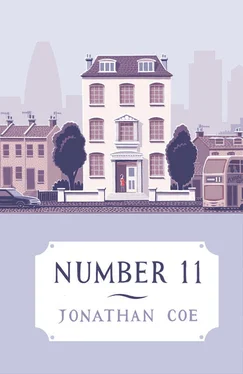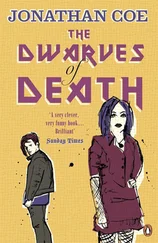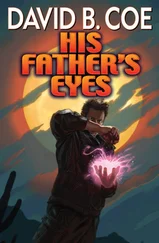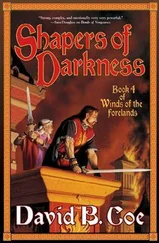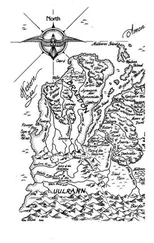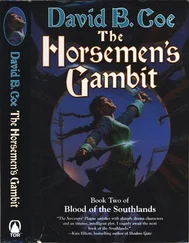Well, this has already taken longer than I thought so I’ll pack it in for now and continue the story tomorrow if I get the time.
25 October 2010 22:33
Oh God yes, I remember that music. So lovely, and so sad! Like the distillation of every lament for childhood innocence that you ever heard. How did I understand that, how did I tune in to it, when I was just five years old? Or am I projecting, looking back on my five-year-old self, my eyes riveted to that tiny black and white screen, the recording of that music (already thirty years old) drifting out of the puny speaker on our little Ekco TV set through a quagmire, a forest of pops and crackles and distortions? And the gas fire hissing in the hearth, my mum next door in the kitchen, getting dinner ready for when Dad came home. I think …
… I think I’m already high on the stuff you’ve told me, and I’ve had 2 or 3 glasses of wine too many while reading it, and it’s always a mistake to post when pissed, so …
26 October 2010 22:42
Hello again Roger
I hope you didn’t drink too much more wine last night, and your hangover wasn’t too horrific this morning!
Anyway, I can see that this is an important story for you, and I’m sorry to have left you hanging in the air like that. It’s taking me longer than I expected to tell you everything. So let’s pick up where we left off.
My grandad Tom designed a nice set of opening title cards for the film and added them to the print, but I’m pretty sure Friedrich never saw them — not until many years later, anyway. In fact Grandad was still working on the film, and still had the print in his possession, when he got a telegram from Friedrich which gave him quite a shock. It was sent from a transatlantic liner and it said that a friend of Friedrich’s had obtained a work permit for him in America at very short notice and he was off to Hollywood. (Along with all the other, more famous European refugees from Nazi Germany who went there in those years — I’m sure you don’t need me to list their names.) And that was the last Grandad ever saw of him, as it turned out. Friedrich changed his name to Fred Goodman and after a few years in Hollywood he moved over to television and worked on a number of big shows for CBS and others. Which, coincidentally, is more or less what Grandad did after the war. He worked at Ealing Studios for most of the forties but made the transition to television almost as soon as commercial TV started up. He moved to the Midlands and worked for ATV, designing titles and captions to start with, finally ending up with a desk job in scheduling.
So that brings us to the mid-1960s. Grandad and Friedrich have sporadically — very sporadically — kept in touch during this time. A letter every two or three years. Grandad still has the print of The Crystal Garden and has shown it a few times at film societies and so on — at one point even offering to try and find distribution for it as a supporting feature but I don’t think anything came of that. Friedrich has given him carte blanche to get it shown whenever he can — he’s not interested in remuneration. And this is how Grandad one day gets his idea. The scheduling at ATV can be somewhat erratic, especially during the daytime, and the best care isn’t always taken to ensure that feature films, in particular, fill the spots that have been allowed to them. Quite often ten or fifteen minutes have to be filled in and for this reason a little stockpile of ‘standby’ material is kept on hand: sometimes cartoons and so on, but those can be expensive to use, so more often it’s cheaper material like terrible Public Information films from the 1950s. And so, Grandad decided to lend his print of The Crystal Garden to ATV so that they could drop it into the afternoon schedule like this if they ever needed to. To plug a ten-minute gap. And that is indeed what happened — once and once only — on the day you saw the film and it made such a strong impression on you.
So, I hope I have cleared up that mystery at least. It’s been nice connecting with someone who remembers the film — the story of Grandad and Friedrich and this one unrepeated screening is something of a legend in my household. It’s nice to know that someone saw it and, more importantly, actually remembers it.
27 October 2010 00:27
Chris
I can’t believe you have left the story unfinished like this. You haven’t answered the most important question of all.
WHAT HAPPENED TO THE PRINT???
27 October 2010 21:46
WHAT HAPPENED TO THE PRINT??
28 October 2010 10:33
Dear Roger
Hm. Well, a quick ‘thanks’ or something after I told you all that stuff would have been nice, but anyway …
Briefly — when the Wall came down in ’89, Friedrich returned home to Magdeburg for the first time in more than sixty years. He wrote to my grandfather and asked him to send the print out to Germany as he wanted to see it again. And that’s what Grandad did. More than that I don’t know.
Hope this satisfies your curiosity.
Cheers
Chris
And that, it seemed, was the end of the thread. Rachel closed the laptop and handed it back to Laura, who had been watching her all this time, sipping her wine mechanically and leaning forward in her eagerness to observe her reaction.
‘Well …?’ said Laura, after a while, when no immediate response was forthcoming.
‘He certainly had it bad,’ said Rachel. ‘I hope that he didn’t … I hope you’re not going to tell me the next thing he did was go to Germany?’
Laura nodded slowly, with a sad, emphatic smile. ‘Of course. What else was he going to do?’
She ran a hand through her hair and took a deep breath. ‘Roger had a friend who lived over there. Well, not a friend, exactly — an academic colleague called James, who’d married a German woman and now taught film studies at the Freie Universität in Berlin. When Roger was writing about The Private Life of Sherlock Holmes , James had helped him to track down an old German TV documentary about Billy Wilder. He was resourceful and he knew his way around the key German film archives. So James made some routine initial enquiries but nothing came of them. Friedrich Güdemann had died in 2004 at the healthy age of ninety-five, but since then The Crystal Garden hadn’t turned up anywhere. So what had become of that single print? Was it with his family — and for that matter, where were his family? Did he have children and grandchildren back in America? Roger sent a message to Chris asking him if he knew anything about this, but Chris was no longer in the mood to answer any of my rude husband’s questions. So this was where James had to step in again.
‘Well, Güdemann had been gay, apparently — that was one of the first things he discovered. When he’d come back to live in Germany he was already an old man and his long-term lover was dead. Güdemann spent his last years in Leipzig, with his sister and brother-in-law. By the time James found all this out, the brother-in-law was the only one left alive, and he was in a care home and not particularly compos mentis . James found himself dealing with this man’s son-in-law, a guy in his late fifties called Horst. So we’re already several steps removed from Friedrich himself by now. After putting his father-in-law in a home, Horst had sold his house and put all his effects into a couple of big storage units in a warehouse on the outskirts of Leipzig. Did this include any of Friedrich’s stuff, James wanted to know? Horst wasn’t sure. He’d simply taken the entire contents of the house and stored them. His plan was to go through it all whenever he had the time but he hadn’t got round to it yet.
Читать дальше
